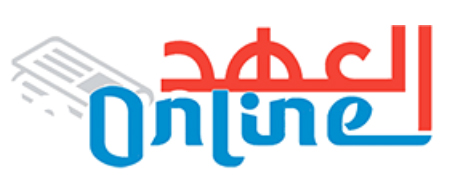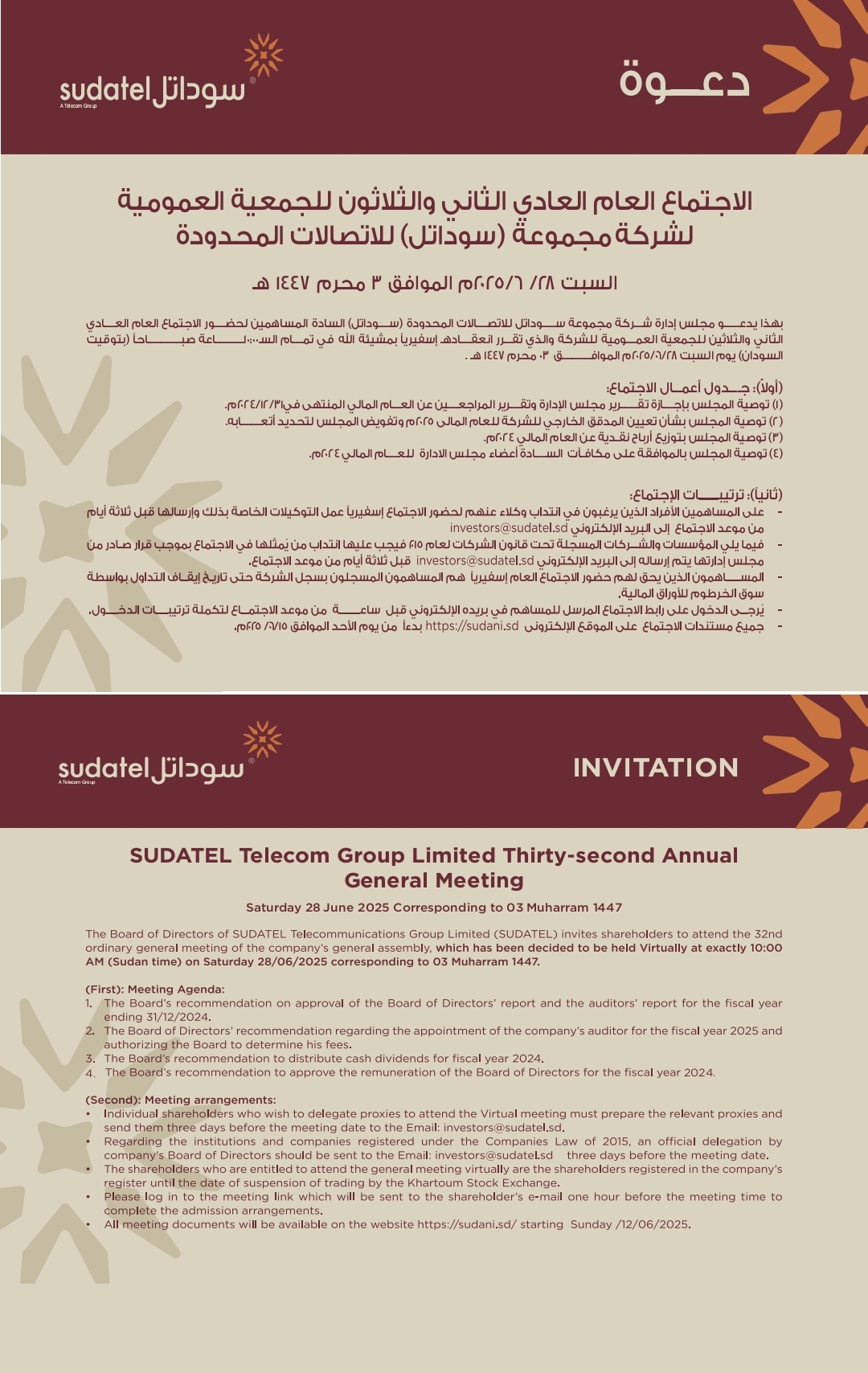د. محمد يوسف قباني يكتب: حين تتحوّل المساعدات من طوق نجاة إلى قيدٍ نفسي واجتماعي ثقيل: قراءة ومقاربة في أزمة الكرامة الإنسانية ومسارات البحث عن بدائل عمل في السودان. *When aid turns from a rescue into a heavy psychological and social shackle: A reading into the human dignity crisis and the search for alternative employment in Sudan.* Dr. Mohamed Elgabbani..

د. محمد يوسف قباني يكتب: حين تتحوّل المساعدات من طوق نجاة إلى قيدٍ نفسي واجتماعي ثقيل: قراءة ومقاربة في أزمة الكرامة الإنسانية ومسارات البحث عن بدائل عمل في السودان.
*When aid turns from a rescue into a heavy psychological and social shackle: A reading into the human dignity crisis and the search for alternative employment in Sudan.*
Dr. Mohamed Elgabbani..
في خضم أزمات السودان المتلاحقة، التي تتراوح بين الحرب والنزوح والانهيار الاقتصادي والمؤسسي، أصبحت المساعدات الإنسانية طوق نجاة للكثير من الأسر، خاصة في مناطق النزاع والهشاشة الاجتماعية. لكن هذا الطوق ذاته بدأ يتحول في وعي السودانيين من رمز إنقاذ إلى قيدٍ نفسي واجتماعي ثقيل، حين يقف المواطن في طوابير طويلة بكرامة مجروحة، منتظراً حفنة غذاء ودقيق أو قنينة زيت. وهنا تبرز الأزمة الأخلاقية والسياسية الأكبر: هل تحوّلت الكرامة إلى سلعة؟ وهل اختُزل دور الإنسان السوداني في “متلقٍ” دائم؟ وأين هو البديل؟ هذا المقال يحاول استكشاف أبعاد أزمة الكرامة المتعلقة بالاعتماد على المساعدات، ويسبر مسارات العمل الممكنة للخروج من هذا النفق الطويل.
وأقسم مقالتي إلى أربعة محاور رئيسة وخاتمة:
1. المساعدات الإنسانية بين الضرورة والامتهان
2. الكرامة المهدورة في طوابير المعونات
3. الاُطروحات الرسمية الغائبة وسؤال البدائل التنموية
4. نحو خطاب إنساني يعيد بناء الثقة
5. والخاتمة تتناول نقطة جوهرية: من الإغاثة إلى النهوض
أولاً: المساعدات الإنسانية بين الضرورة والامتهان
لا شك أن المساعدات الإغاثية كانت ولا تزال ضرورة حيوية في سياق الكوارث والحروب، وهي شكل من أشكال التضامن الإنساني الدولي، خصوصاً في ظل الأزمات الممتدة التي يعيشها السودان منذ سنوات، والتي بلغت ذروتها بعد اندلاع الحرب في أبريل 2023. لكن التحدي يكمن في تحوّل هذه المساعدات من حالة طارئة ومؤقتة إلى نمط دائم يُغذي التواكل ويفرض ثقافة الاتكالية، دون أي أفق استراتيجي للتعافي الذاتي.
فقد باتت المنظمات الدولية وبعض المبادرات المحلية، توزع المساعدات على نطاق واسع، ومعها أصبحت كثير من الأسر تعيش على ما تجود به بعض من هذه الجهات، التي قد لا تراعي دائماً كرامة المستفيد ولو بحسن نية وسلامة المقصد، ولا تضمن الاستمرارية. فالمساعدات توزع في ساحات مفتوحة، وأحياناً تُقرن بتوثيق إعلامي فجّ، ويُعامل المواطن كرقم لا كإنسان. هذا الواقع يؤسس لحالة “تطبيع مع الذل”، تقوّض الشعور بالفخر والعمل والكسب الشريف.
ثانياً: الكرامة المهدورة في طوابير المعونات
الكرامة، كما يعرّفها فلاسفة الأخلاق، هي الشعور الداخلي بالقيمة الذاتية، والاستقلالية، والقدرة على اتخاذ القرار في حياة الإنسان. وعندما يُجبر المواطن على الوقوف لساعات طويلة من أجل كيس دقيق أو بعض المستلزمات البسيطة، فإن ذلك لا يهدد فقط حياته المعيشية، بل يهزّ أعماقه النفسية والاجتماعية. تُصبح الكرامة هنا مهدورة تحت وطأة الجوع، والجهل، واللامبالاة، بينما تتسرب مشاعر الإحباط واليأس وفقدان الثقة في الذات والمجتمع والدولة.
لقد أصبح مشهد التزاحم للحصول على المعونات واحداً من أكثر الصور التي تختزل انهيار البنية الاقتصادية والاجتماعية في سوداننا الغالي. وتكرار هذا المشهد يُنتج ثقافة هزيمة نفسية تنعكس على سلوك المجتمعات وتوجهاتهم؛ فالشاب الذي يتلقى سلة غذائية لا يمكن أن يُربى على روح المبادرة، والمواطنة، والمسؤولية الجماعية. والطفل الذي يرى والده يهان في سبيل طعام قد ينشأ على كراهية الدولة والمجتمع والمؤسسات.
ثالثاً: الاُطروحات الرسمية الغائبة وسؤال البدائل التنموية
في قلب هذه الأزمة، تبدو الاُطروحات الرسمية السودانية غائبة تماماً أو ضعيفة، إما بسبب الحرب، أو بسبب الفساد المزمن، أو بسبب ضعف الرؤية والتخطيط. فلا سياسات واضحة لإعادة بناء الاقتصاد، ولا برامج قومية لتأهيل الشباب، ولا حتى استثمار في الموارد الطبيعية والبشرية الهائلة التي يزخر بها السودان.
أمام هذا الغياب، لا بد من التفكير في بدائل جذرية تنموية تضمن للمواطن العيش الكريم، دون حاجة للارتهان الدائم للمساعدات. هذه البدائل يجب أن تكون مبنية على العمل والإنتاج المحلي والمبادرات المجتمعية، مثل:
1. برامج العمل مقابل الغذاء بإشراف المجتمعات المحلية.
2. تشغيل النازحين في مشاريع إعادة الإعمار.
3. تحفيز الشباب على الدخول في مشاريع ريادة الأعمال الصغيرة.
4. تعليم مهارات سريعة ومطلوبة في سوق العمل (حرف، تكنولوجيا، زراعة).
5. الاستثمار في الطاقات المتجددة والزراعة المجتمعية كمدخل اقتصادي مباشر.
وهذه الحلول لا تعني التخلي عن المساعدات، بل تعني توجيهها وتطويعها ضمن مشروع نهضوي، لا يُفقد الإنسان كرامته، بل يعيد له الثقة بنفسه.
رابعاً: نحو خطاب إنساني يعيد بناء الثقة
المنظمات الإنسانية العاملة في السودان بحاجة كذلك لمراجعة خطابها وآليات عملها، بحيث تُعيد الاعتبار للكرامة الإنسانية، وتتجاوز عقلية الإغاثة الموسمية إلى مشاريع تعافي وتمكين. فليس كافياً توزيع السلل الغذائية أو المال النقدي، بل يجب أن يُدمج ذلك في برامج تنموية، تشاركية، تراعي ثقافة المجتمع وتستثمر في قدراته.
وبموازاة ذلك، على المجتمع المدني السوداني وقياداته الفكرية والدينية والاجتماعية أن تطلق خطاباً جديداً يعيد ترسيخ قيم العمل والاعتماد على الذات والتكافل المجتمعي، ويكافح ثقافة الاتكالية والإذلال.
من الإغاثة إلى النهوض
لقد علمتنا التجارب أن المساعدات وحدها لا تبني المجتمعات، بل قد تُعيد إنتاج الفقر إن لم تُدار بوعي استراتيجي. والسودان اليوم، برغم قتامة المشهد، لا يزال يملك من الإمكانات ما يؤهله للنهوض: شبابه، أرضه، موارده، وخبرة مجتمعاته القادرة على التكيّف والإبداع.
وعلينا أن ننتقل من منطق “البقاء بالمساعدات” إلى منطق
“الحياة بالكرامة”، ومن عقلية الاستجداء إلى ثقافة العمل والإنتاج. وهذا لا يتحقق إلا بشراكة واعية بين المواطن، والمجتمع المدني، والمنظمات الإنسانية، والدولة. فالكرامة ليست ترفاً، بل هي الأساس لأي نهوض حقيقي، وهي الحق الأول الذي لا ينبغي أن يُساوَم عليه، حتى في أحلك الظروف.
Amid Sudan’s successive crises, ranging from war and displacement to economic and institutional collapse, humanitarian aid has become a rescue for many families, especially in areas of conflict and social fragility. However, this same rescue has begun to transform in the Sudanese consciousness from a symbol of salvation into a heavy psychological and social shackle, as citizens stand in long queues, their dignity wounded, waiting for a handful of food, flour, or a bottle of oil. Here, the
greater moral and political crisis emerges: Has dignity become a commodity? Has the role of the Sudanese person been reduced to that of a permanent “recipient”? And what is the alternative? This article attempts to explore the dimensions of the dignity crisis related to dependence on aid and explores possible paths of action to emerge from this long tunnel. The writer divides the article into four main sections and a conclusion:
1. Humanitarian aid between necessity and humiliation
2. Dignity squandered in aid queues
3. Absent official proposals and the question of development alternatives
4. Towards a humanitarian discourse that rebuilds trust
5. The conclusion addresses a fundamental point: From relief to recovery
First: Humanitarian Aid between Necessity and Humiliation
There is no doubt that relief aid has been and remains a vital necessity in the context of disasters and wars. It is a form of international humanitarian solidarity, especially in light of the protracted crises that Sudan has been experiencing for years, which reached their peak after the outbreak of war in April 2023. However, the challenge lies in the transformation of this aid from a temporary emergency into a permanent pattern that fuels dependency and imposes a culture of reliance, without any strategic horizon for self-recovery.
Some International organizations and local initiatives have begun distributing aid on a large scale, and with it, many families have come to live off the generosity of some of these entities. These entities may not always respect the dignity of the beneficiary, even if they are provided with good intentions, nor do they guarantee continuity. Aid is distributed in open spaces, sometimes accompanied by crude media coverage, and citizens are treated as
numbers rather than human beings. This reality creates a state of “normalization with humiliation,” undermining the sense of pride, work, and honest earnings.
Second: Dignity Lost in Aid Queues
Dignity, as defined by moral philosophers, is the inner sense of self-worth, independence, and the ability to make decisions in one’s life. When a citizen is forced to stand for long hours for a bag of flour or some simple necessities, it not only threatens their livelihood but also shakes their
psychological and social foundations. Dignity is squandered under the weight of hunger, ignorance, and apathy, while feelings of frustration, despair, and the loss of confidence in oneself, society and the state.
The scene of crowding to obtain aid has become one of the most vivid images of the collapse of the economic and social structure in our beloved Sudan. The repetition of this scene produces a culture of psychological defeat that is reflected in the behavior and attitudes of societies. A young person who receives a food basket
cannot be raised on the spirit of initiative, citizenship, and collective responsibility. A child who sees his father humiliated for food may grow up hating the state, society, and institutions.
Third: The Absent Official Proposals and the Question of Development Alternatives
At the heart of this crisis, official Sudanese proposals appear completely absent or weak, either due to war, chronic corruption, or a lack of vision and planning. There are no clear policies for rebuilding the economy, no national programs for youth
rehabilitation, and no investment in Sudan’s vast natural and human resources.
In light of this absence, it is imperative to consider radical development alternatives that guarantee citizens a decent living, without the need for permanent dependence on aid. These alternatives must be based on local labor and production and community initiatives, such as:
1. Work-for-food programs under the supervision of local communities.
2. Employing displaced persons in reconstruction projects.
3. Motivating youth to engage in small business ventures.
4. Teaching quick skills in demand in the labor market (crafts, technology, and agriculture).
5. Investing in renewable energy and community agriculture as a direct economic entry point.
These solutions do not mean abandoning aid, but rather directing and harnessing it within a revitalization project that does not deprive people of their dignity, but rather restores their self-confidence.
Fourth: Towards a Humanitarian Discourse that Rebuilds Trust
Humanitarian organizations operating in Sudan also need to review their discourse and working mechanisms to restore respect for human dignity and move beyond the seasonal relief mentality to projects of recovery and empowerment. It is not sufficient to distribute food baskets or cash; rather, these must be integrated into participatory development programs that take into account the community’s culture and invest in its capabilities.
In parallel, Sudanese civil society and its intellectual, religious, and social leaders must launch a new discourse that re-establishes the values of work, self-reliance, and community solidarity, and combats the culture of dependency and humiliation.
From Relief to Recovery
Experience has taught us that aid alone does not build societies; rather, it can reproduce poverty if not managed strategically. Despite the bleak scene and context, Sudan today still possesses the potential to advance: its youth, its land, its resources, and the experience of its communities, capable of adapting and innovating.
We must move from the logic of “survival through aid” to the logic of “life with dignity,” and from the mentality of begging to a culture of work and production. This can only be achieved through a conscious
partnership between citizens, civil society, humanitarian organizations, and the state. Dignity is not a luxury; it is the foundation of any true recovery. It is the primary right that should not be compromised, even in the most difficult circumstances.









